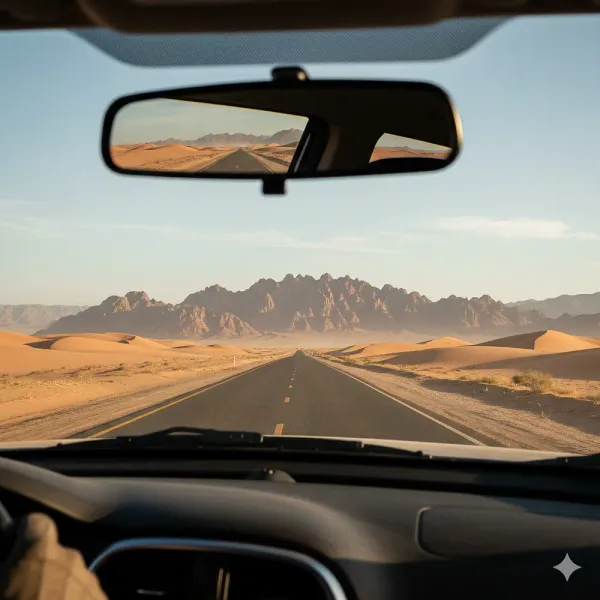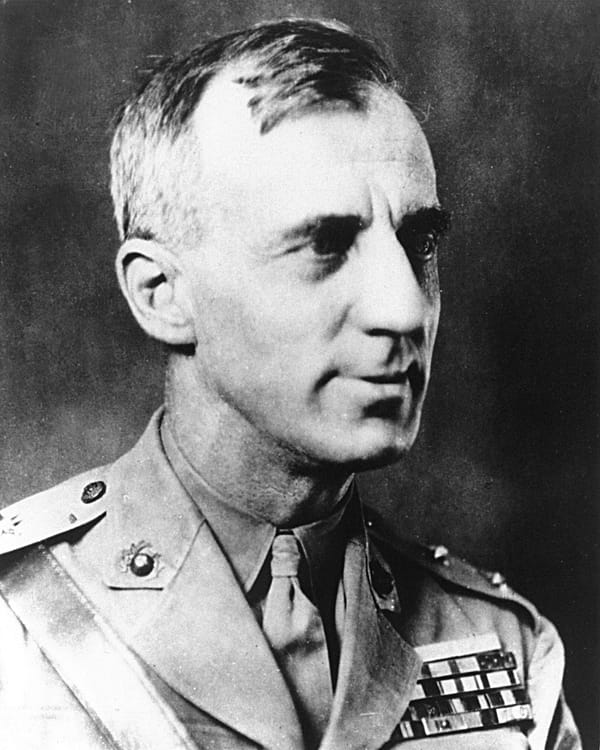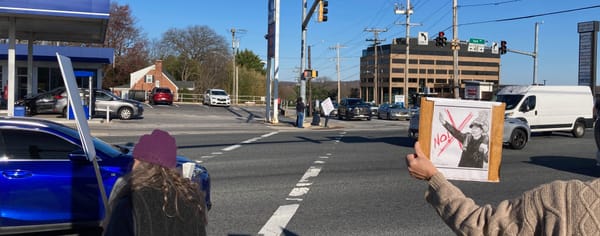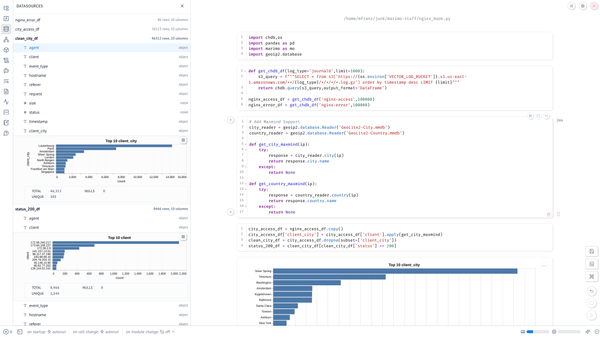Returning to History
This VUCA Decade
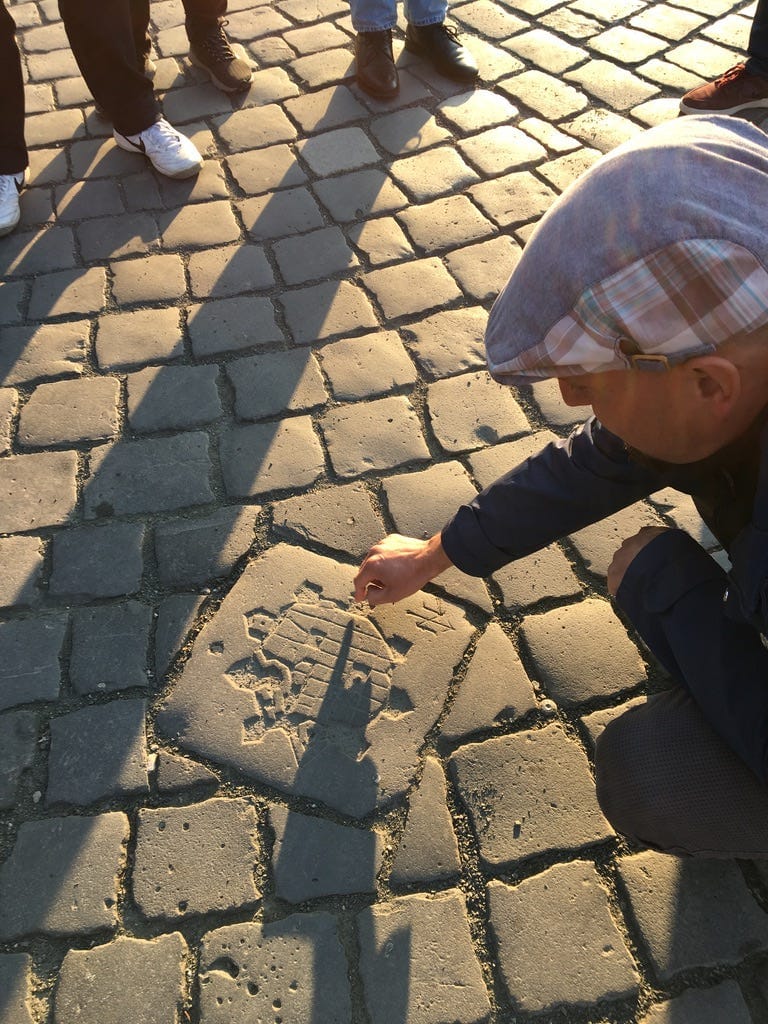
This VUCA Decade
At the end of 2021, with some hope of Pandemic normalcy on the horizon, my wife and I considered a trip to Europe the following Summer. Then February 24 happened and the job I accepted around Halloween did not work out as expected or desired. We watched the exodus of civilians from Ukraine stream into Poland on trains and through clogged roads and checkpoints. Perhaps flying to Berlin or Prague wasn’t such a great idea after all? The daily drumbeat of nuclear brinksmanship doesn’t make you want to leave behind any of your children on a different continent. This decade, already gone full-VUCA, was not going to let up.
Taking advantage of the last gasp of the remote tech bubble, I landed a new role in mid 2022, and we focused on the kids. Our daughter began her first semester at college. We returned to the grind.
Although I had taken almost two weeks off in the Spring of 2021, it wasn’t nearly enough. I really needed a sabbatical. I contemplated a leave of absence and browsed the HR site at T Rowe reviewing the policies, but I never even discussed it with my manager. Bad move. I was not in a good place. I was sick of it. Not taking enough PTO is one professional regret that has taken me decades to figure out.
Throughout my career, the most vacation time I’ve burned was for trips to Russia and China when we adopted our two oldest children. Becoming an adoptive parent is wonderful, but not particularly stress free. The downside of never settling and always pushing yourself is that it is exhausting. If you change jobs (for whatever reason, money or more learning) every two to three years, there is an incentive to hoard PTO unless you have unlimited PTO, which was typically not the case in the last decade. I’d call it an exit bonus. It is just not healthy.
Burnout is additive, maybe even addictive. But there are a lot of things about the American way of working that is not healthy, such as barely taking a break between jobs because you can’t stomach (or afford) paying COBRA. Too many times I’ve quit one job on a Friday and started a new one on a Monday.
The longer your career progresses, the harder it gets to maintain the same sense of wonder. Unlike a sense of urgency, curiosity can’t be faked. Curiosity is critical, especially when in a leadership role, because it is an antidote to the inevitable cynicism that sets in. Everything starts to seem the same once you have enough experience. But what to do about it?
Besides AI, all I hear about on Bloomberg Radio is how Americans are investing in “experiences.” As we approach the end of July 2023, we are told the American consumer is resilient. Our pocketbooks have loosened. For those of us that have jobs, that certainly seems to be the case. We have renovated our kitchens and basements. We have replaced our appliances, suffering through supply chain shortages, and now we must go out into the world.
(Truly, First World problems.)
In our family, that has been true over the last year. Our youngest son attended hiking camps in the mountains, first in the Rockies and most recently in the Chugach. My wife just completed a week-long summer session in Seattle at the university that published one of her stories and she came back energized. Even our oldest took a road trip to Nashville over this unusually long Fourth of July weekend. He has wanted to go for years. It is finally my turn.
Last week, my wife encouraged me to visit Europe solo, to do something “offline” that had nothing to do with work or supporting our family.
“Why don’t you go visit those battlefields you always read about?” she said. I booked a round-trip flight to Paris this Fall and am planning my route.
(I always agonize over picking flights even when my employer pays for them, so this time was no exception.)
“Just do it! Don’t think about the money!” my wife said.
So United it was, despite TAP being a bit cheaper. I thought about passing through Lisbon, where I traveled twice in the 2010s. I considered going through Rome and visiting Monte Cassino, Anzio, and the Rapido — but decided to stick to further north.
Europe is small, but not that small.
I took quite a few trips to Germany (Munich in particular) in the last decade and enjoyed my trips to Romania, but I’ve never been the France or Belgium.
The Idea
Since I was a kid, I have been reading about the Hitler’s pre-Christmas offensive against the battered American divisions recuperating in Belgium and Luxembourg. And, of course, the successful American counterattack that followed, the 4th Armored Division racing against the clock. When the weather finally cleared around Christmas, it created the air bridge to deliver supplies to the encircled 101st Airborne and remnants of the other units that share just as much of the credit as the “Screaming Eagles” for the defense of Bastogne. And just as importantly, the small battles and delaying actions that cause the Panzers to run dry.
The Ardennes has always seemed mysterious and mythical–even without that episode of Band of Brothers. Of course, there is Bastogne and St. Vith. But there is also Malmedy and Houffalize, Clervuux and Witz. Did you know that Marlena Dietrich performed in Bastogne just days before the attack began?
The Belgian crime show Public Enemy and rewatching Undercover recently reminded me of this draw to Belgium and these dark forests.
Sure, I remember friends and colleagues raving about beer in Brussels, but that is not my motivation. Truly I have no desire to go to any of the big cities of Europe while I am there. I want to get out of Paris as soon as I can as soon as I find my way onto the TGV. The small towns and road centers are what I want to visit. The key terrain. These are places I want to see. What remnants remnants of what happened in November, December and January nearly 79 years ago?
Looking at Google Maps, I discovered that Verdun is in between Paris and Metz and have started a history of the French in the Battle of Verdun. I have never passed through France, Belgium, Holland, or Luxembourg.
As an adult, I served in the 90th Army Reserve Command and wore the “TO” patch on my left shoulder while I was in college. The 90th Division landed in Normandy and fought near Metz. I also served in the 95th Training Division, called the “Iron Men of Metz” and feel some connection to the men who served there, whether I have a right to or not. In the last few years, I’ve read about the Hurtgen campaign, and further south, the recapture of Metz.
Then there is Holland. I saw A Bridge Too Far in the theater when it came out in 1977. I cried at the end. (Yes, I was a very weird kid, especially in the 1970s. I was so pissed at the ending with the British taking tea in their Sherman tanks while their brothers in arms were fleeing Arnhem.)
I read the book several years later. I read A September Hope in 2014. And then reread it at some point. I want to visit Grave, Eindhoven, Nijmegen, and of course Arnhem. Perhaps, I’ll wrap up in Dunkirk and try to see Dover. We shall see. I’ve got a week.
Travel as Forcing Function
Working remote for most of the 2010s (yeah, years before COVID) frequent travel was key to staying engaged — and maintaining focus. Quarterly trips to Ottawa. Monthly trips to Alexandria or Leesburg. India in the Spring and Fall. This was the hardest thing about the pandemic. It seemed endless. No more jetlag cycles. No more trains to Newark, my usual embarkation port to Europe or Asia. Time only marked by your vaccination card.
(Did you mix in Moderna this time? Which wave are we in now? The genealogy of death.)
As I blogged in 2015, travel provides a ritual. You develop a routine. Prepping. Packing. Getting yourself in the right mindset for the anticipated disruption of time and space. The gradient of the strange and familiar, shifting depending on the destination.
The weird, wonderful disorientation of being propelled in an aluminum tube at 600mph for 6 to 12 hours arriving somewhere else. The ultimate context switch. Borders and customs of various degrees of efficiency or intrusiveness. Passport stamps of varying degrees of precision and pressure: blue, red, green, or black. The babel of foreign tongues. Sense-making, depending on how familiar the locale. New greetings and meetings, but never good bye’s — only see you next time.
Reconnecting with people and places. Taking the esclator down past the McDonald’s on the left to the train to the city from MUC, passed the AirStream camper, weirdly out of place. The colorful portraits in traditional garb outside the washrooms in DEL after you exit the 777 after being trapped a half-day, a sweating the final hours of Pakistan and other territories of the former Soviet Union.
Is there an attendant or a tip-plate in the toilet? The lawn chairs in the departure after one final metal detector and the excitement of returning home, Newark never looking cleaner. Looking left as you cross the Gunpowder River on the Amtrak, seeing the shoreline where you played as a teen in the 1980s. The making (and reinforcement) of memory.
Having just returned from a few days in Boston with my wife, I have one more trip to Denver in the next month before my trip to Europe in September. I plan and prepare for both. Scribble notes on paper and whiteboards. Read and reflect and write. Rinse and repeat.
